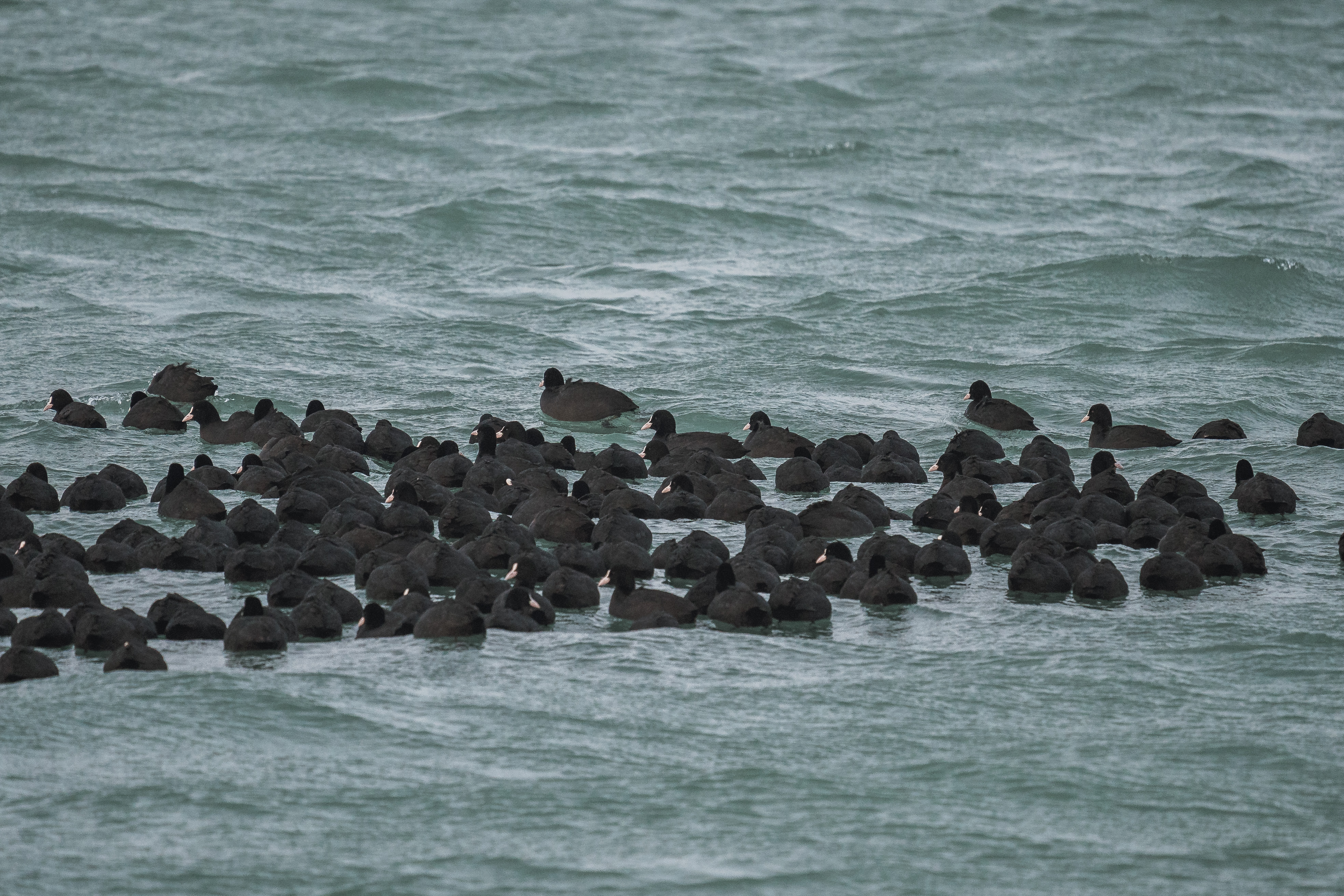Global warming

The Common Scoter is one of the different type of bird species that inhabit the Port of Baku area.
Due to climate change, the sea level and lakes are shrinking. Researchers predict that by the end of the current century the level of the Caspian Sea will drop by 9-18 meters, which will cause the lake to lose at least 25 percent of its former volume. According to the Paris Agreement, if countries accelerate joint action to combat climate change, the reduction could be only 9 meters.
At present, the Caspian Sea has two major areas of concern: level change and its ecological state.
The lowering of the level of the Caspian Sea has caused a number of consequences, such as:
• Direct threat to the unique biodiversity of the water body;
• Eutrophication (algal blooms) caused by warming water, which leads to a decrease of oxygen levels and consequently, adversely affects marine life;
• Socio-economic consequences such as damage to coastal enterprises;
• Loss of livelihoods of coastal communities.
The lowering of the level of the Caspian Sea has also a serious impact on shipping. The retreat of seawater creates serious problems for ships when approaching the port and exposes pitfalls, which makes it even more difficult for them to move. The lowering of the water level also affects the loading of ships approaching the ports.
The current depth level in the Port of Baku is fully suitable for the movement of ships in the sea and carrying most of the dry cargo. Currently, there are no barriers to entry into the port, even for the largest ships. Should the lowering of the water level cause serious obstacles in the workflow in the future, work can be carried out to deepen the seabed, however, at present, there is no such problem.
Although sea level change is a natural process, there are still some issues that need to be discussed. In particular, the pollution of the rivers flowing into the Caspian Sea exceeded the critical level.
The European Union has adopted many documents related to the pollution of transboundary rivers. However, both Armenia and Georgia, all of whose rivers flow into the Caspian basin, refuse to join agreements on the protection of transboundary rivers. The Caspian Sea continues to be polluted by more hazardous industrial waste. For example, due to harmful substances discharged from the Zangazur copper-molybdenum mine in southern Armenia through the Araz and Kura rivers into the Okhchuchay, the level of toxicity of the Caspian Sea keeps increasing.


